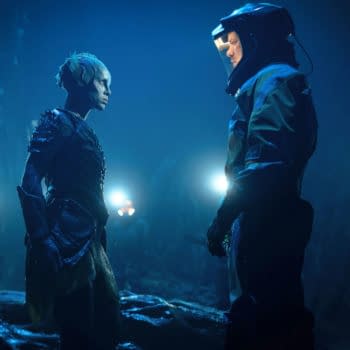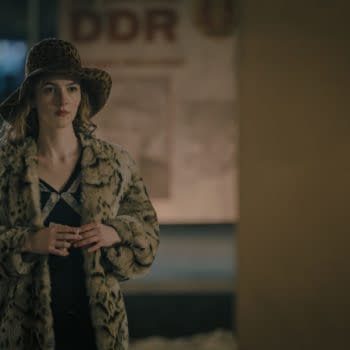Posted in: CBS, Review, Star Trek, streaming, Trailer, TV | Tagged: Anson Mount, bleeding cool, cable, cbs all access, Deep Space Nine, discovery, enterprise, Ethan Peck, janeway, Kirk, mccoy, Picard, pike, prime directive, Rebecca Romijn, Red Angel, sisko, Sonequa Martin-Green, spock, star trek, star trek: discovery, Starfleet, streaming, television, tv, Voyager
'Star Trek: Discovery' Boldly Goes Into a Bright Future [OPINION]
Here we are, more than two weeks after the explosive, emotional, game-changing second season finale of CBS All Access' Star Trek: Discovery. Throughout its first two seasons, Discovery has been weighed down by the obligations of canon. Critics and fans have given the show mixed reviews: some love it, some hate it. But regardless of who is watching, every move that the show has made on screen has been scrutinized, down to the very frame, to compare it with existing canon. Everything from the uniforms, to Klingon foreheads, to Spock's (Ethan Peck) facial hair has been held against what has come before. After a fantastic if at times uneven season 2, Discovery is finally in a position to go where no canon has gone before.
!['Star Trek: Discovery' Boldly Goes Into a Bright Future [OPINION]](https://mlpnk72yciwc.i.optimole.com/cqhiHLc.IIZS~2ef73/w:auto/h:auto/q:75/https://bleedingcool.com/wp-content/uploads/2019/04/std2132.jpg)
Setting Star Trek: Discovery just ten years before the Enterprise's five year mission left showrunners in a no-win situation. The lives and careers of many of the most beloved Star Trek: The Original Series characters had already begun when Burnham (Sonequa Martin-Green) changed everything at the Battle of the Binary Stars. Writers, producers, and even actors were called upon to shoehorn new events, new information, and new characters into the existing timeline. As a result, the first two seasons of Discovery operated under an unprecedented level of scrutiny. Every single creative decision was digested, analyzed, and discussed – often detracting from the interesting stories the show was often telling.
!['Star Trek: Discovery' Boldly Goes Into a Bright Future [OPINION]](https://mlpnk72yciwc.i.optimole.com/cqhiHLc.IIZS~2ef73/w:auto/h:auto/q:75/https://bleedingcool.com/wp-content/uploads/2019/01/112617_0275b.jpg)
While Discovery's first season definitely had nods to previous Star Trek properties, especially the Mirror Universe and Harry Mudd, the show confronted canon head-on throughout season two. The unaired The Original Series pilot "The Cage" was a clear source of inspiration throughout the season. The introduction of Captain Pike (Anson Mount), Number One (Rebecca Romijn), and the Enterprise, Vina (Melissa George) and the trip to Talos IV, Pike's vision quest, all shaped the tenor and the tone of the season. Spock's crisis of faith, descent into mental illness, and eventual healing by Burnham all existed within the very limited confines of the existing canon sandbox. No matter where writers went with the Red Angel plot point, we all knew where Pike and Spock were going to end up.
!['Star Trek: Discovery' Boldly Goes Into a Bright Future [OPINION]](https://mlpnk72yciwc.i.optimole.com/cqhiHLc.IIZS~2ef73/w:auto/h:auto/q:75/https://bleedingcool.com/wp-content/uploads/2019/04/discof-6.jpg)
Despite the added pressure of returning canon characters and intersecting Starfleet timelines, Star Trek: Discovery's second season was dramatically better than its first. Writers and showrunners seemed to finally find their footing, striking the right balance between monster-of-the-week episodes and the overall cinematic season-long story arc. Admittedly, some episodes were stronger than others: the story seemed to stagnate a little in the search for Spock, and the endless teases and occasional bait-and-switch got old. As a whole, the second season worked and viewers were treated to the character development and crew-member camaraderie that seemed to be missing in the first season.
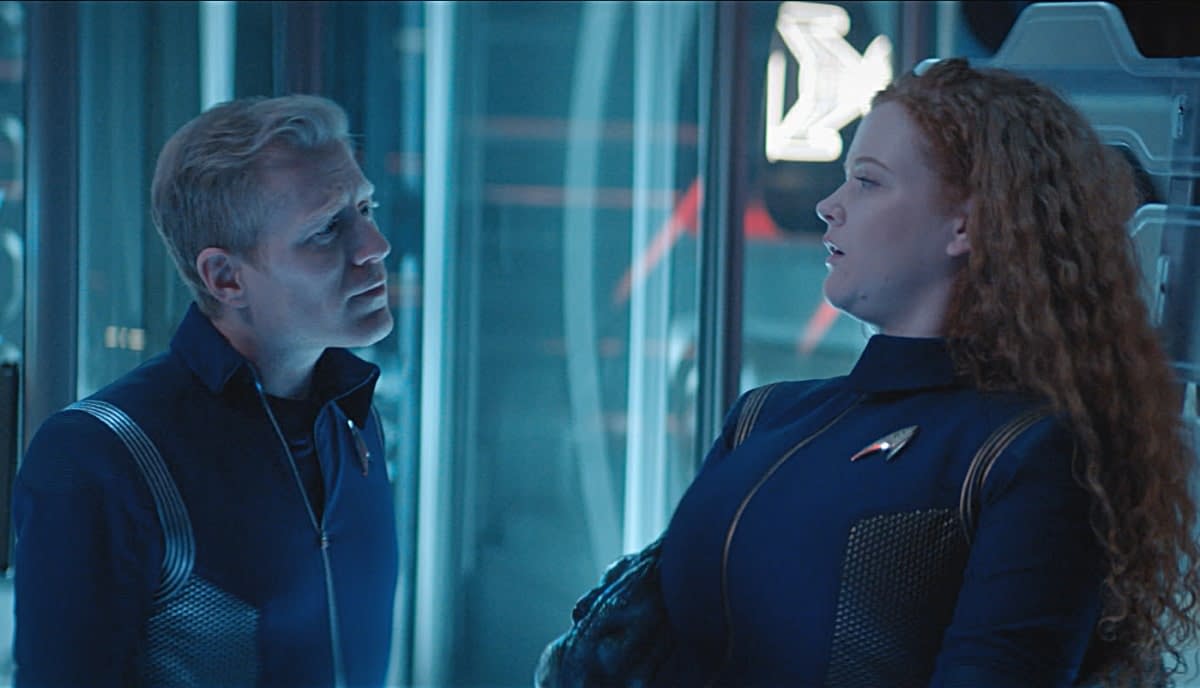
However, the most interesting part of Discovery's second season was how it set the show up for season three. In the last act of the Season 2 finale, "Such Sweet Sorrow, Part 2," the Discovery follows Burnham – in her Red Angel suit – into the future. If we are to trust the information from Dr. Burnham's (Sonja Sohn) logs, the crew traveled approximately 900 years into the future. For the Starfleet personnel who serve on the Discovery, the trip means leaving behind everyone and everything they knew – possibly forever.
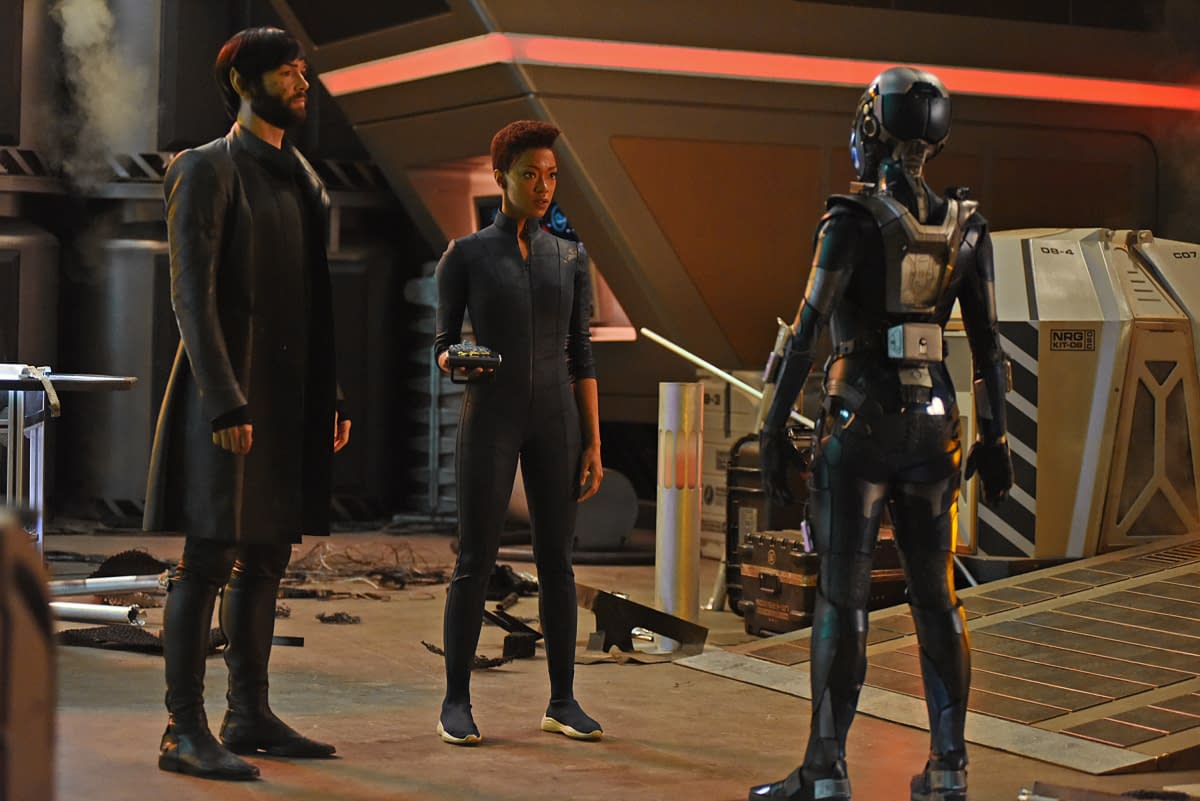
For Star Trek: Discovery, the ship's trip into the future marks the show's emancipation from canon. No one in the Star Trek universe has ever told stories this far into the universe's future. In its third season, Discovery will be starting with a blank slate. Writers no longer have to worry about canon, as the show now takes place roughly 600 years after any of the known Star Trek timelines. Showrunners can now tell the stories they want to tell without having to agonize over every single creative decision. In fact, the show's cast recently discussed how exciting it is to be traveling where no one has gone before.
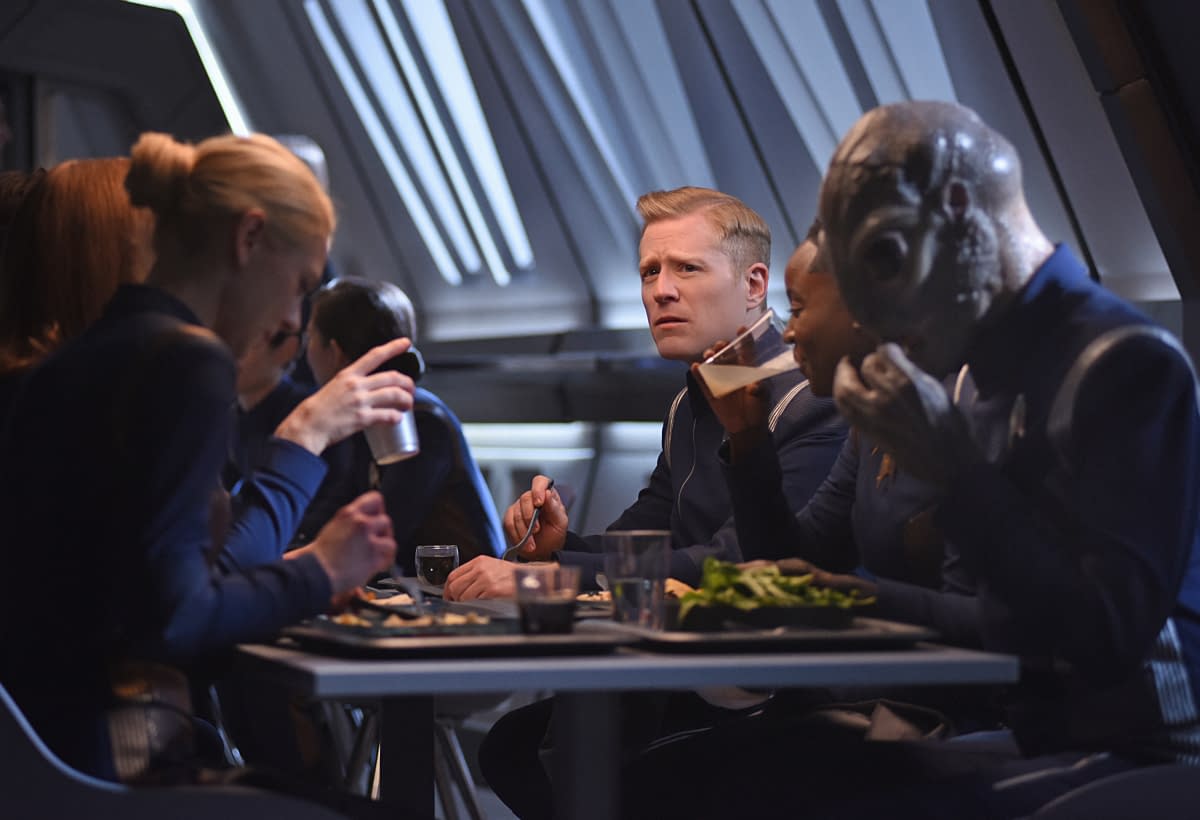
We can anticipate all the usual trappings of building a new fictional universe: new aliens, new political issues, new technology, and a very different Starfleet. However, what I am most looking forward to is a new level of creative freedom. Discovery's showrunners have always talked about how their respect for canon made them constantly worried about going to far. Now with the way they've positioned themselves for season three, writers and producers are facing creative freedom limited only by their budget and shooting schedule.
I am incredibly excited to see what Star Trek: Discovery has in store for us. The future is theirs.
Please don't screw it up.



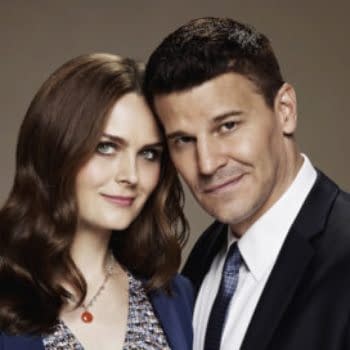


![Too Many Streaming Services? Blame Wall St, Not Cord-Cutters [OPINION]](https://mlpnk72yciwc.i.optimole.com/cqhiHLc.IIZS~2ef73/w:350/h:350/q:75/rt:fill/g:ce/https://bleedingcool.com/wp-content/uploads/2019/07/stream-1-350x350.jpg)




